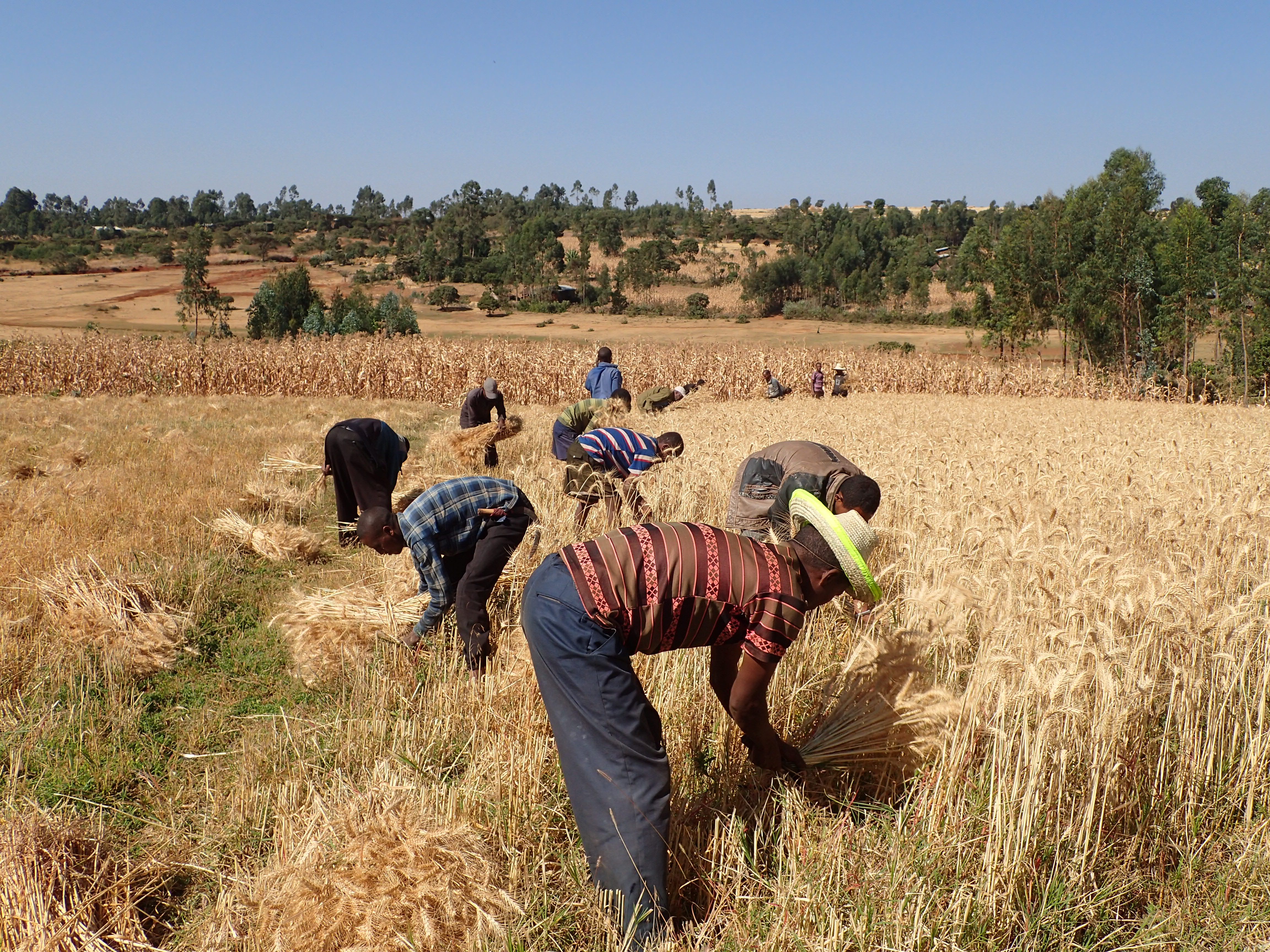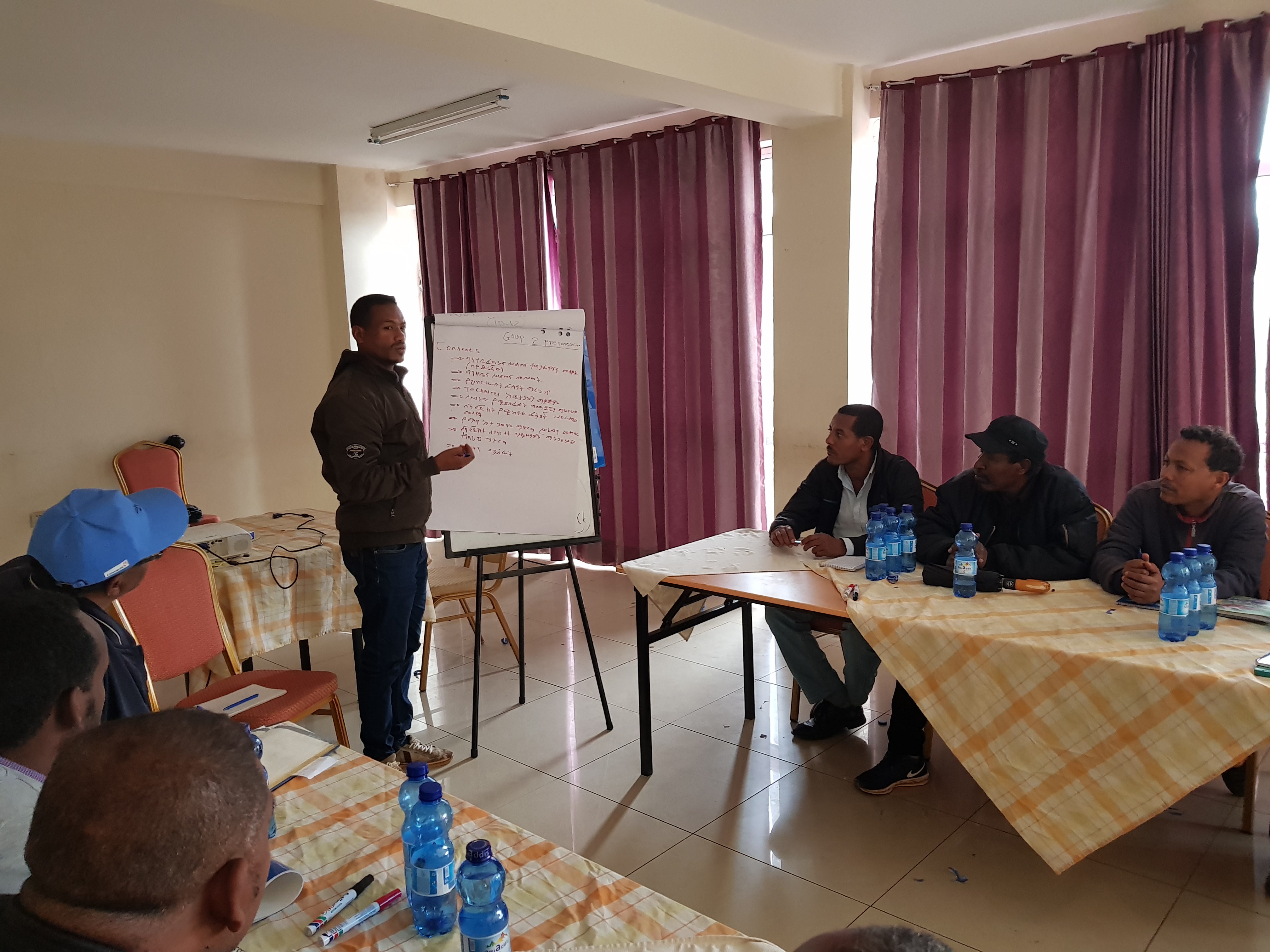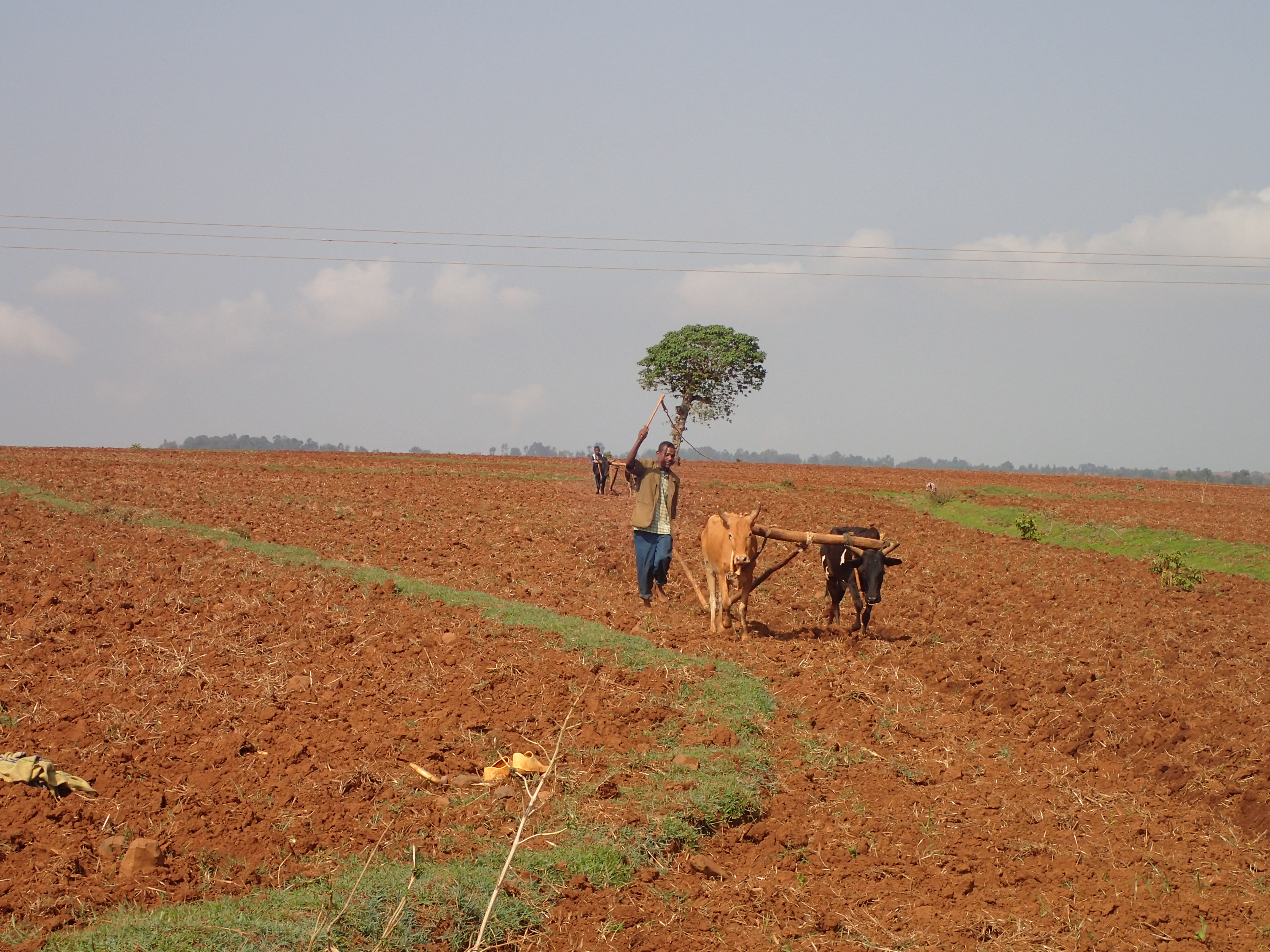In Ethiopia, about 60 per cent of farming households operate less than one hectare of land each and employ rudimentary cultivation methods. Many of those farms are split into spatially separated plots, a phenomenon known as land fragmentation.
Fragmentation of farmland makes farming less effective and affects farmers’ ability to sustainably manage their land. In search of solutions, TMG Research has explored the potential of voluntary land consolidation through engagement with different stakeholders.
Discussions with community members from the highlands of Amhara led to explorations of land consolidation for an agricultural transformation in Ethiopia. In this region, over 70 per cent of the plots were found to be smaller than 0.3 hectares on average. Farmers worked up to 15 plots.
Though there is currently no nation-wide programmatic initiative to promote voluntary land consolidation (VLC) among the country’s over 13 million farm households, the federal land laws and Amhara National Regional State’s regulations encourage farmers to voluntarily consolidate their farmland. However, the regulations lack the necessary details in terms of guiding principles and procedures on how to implement VLC.
In the sites studied, more than 75 per cent of farm households underscored the adverse effects of fragmentation. Farmland fragmentation has repercussions on farm inputs management, farm monitoring, and timely harvesting of produce. For example, farmers with fragmented and scattered plots run a higher risk of losing their harvest to wild animals, as their farm plots are too far away for them to regularly check on them.
To overcome the challenges of land fragmentation, farmers discussed ideas of exchanging their plots to consolidate their farmland. However, in the past, most farmers were reluctant to do so due to substantial soil fertility and productivity differences between individual fields. Over the years farm plots have exhibited similar fertility status due to increased soil degradation and decreased soil productivity. These situations combined with other factors have made farmers appear more open to the idea of land consolidation. The two major perceived benefits echoed by all the farmers during the community consultation were a reduction in amount of time and labour for farm management and the potential that VLC holds to improve farmland through soil fertility improvement techniques.
In some cases, farmers have already started swapping their plots with the general aim of facilitating their farming operations. The specifics may vary from place to place. These self-initiatives need to be used as momentum to promote VLC within the rural area where fragmentation is considered a big challenge.
The outcomes of these discussions with farmers gave impetus to float the VLC idea with the Ministry of Agriculture and international development partners. The government of Ethiopia is now putting VLC high on its policy agenda and preparing, in collaboration with development partners, to pilot VLC in selected woredas (districts) and refine the regulations surrounding it.
Experts agree that if VLC is done based on the principles of participation and inclusivity, it holds a lot of potential for the future of agriculture in Ethiopia. In their view, VLC allows farmers to optimise their farmland structure, farm more efficiently, and apply SLM practices more effectively. In sum, VLC can increase the long-term sustainability of smallholder farming. The experts underlined that although the land consolidation policy was adopted during the socialist era, its implementation was problematic. What was meant to be a voluntary process ended up being obligatory and forced. In order to translate VLC into action farmers need to be actively involved in the entire process—from initiation to implementation and assessment of the impacts of VLC on their farming practices.
The community consultation sessions revealed three major challenges to VLC. They concern the question of how to valuate and account for such differences as in farmland fertility, degree of farmland slope, and distance to settlement sites. To address these issues, farmers suggested creating locally agreed land consolidation zones based on soil fertility status, irrigation infrastructure, and predominant crops. In addition, farmers emphasised the need for repeated events to raise awareness and clarify issues through combined use of local and scientific knowledge.
Voluntary land consolidation can be a policy instrument to address the challenges of subsistence agriculture in Ethiopia. Among other things, land consolidation can lead to improved agricultural productivity and management of natural resources. However, despite its potential, there have been few policy discussions or pilot projects on VLC.
The successful initiation and implementation of VLC requires concerted efforts from different stakeholders to move the process forward. Genuine engagement and dialogue with farmers is essential to successfully pilot voluntary land consolidation and further develop implementation modalities. At the same time, the participants must represent different segments of the community: from farmers to rural land administration experts, policy makers and international development partners. The lessons learnt from project implementation can, in turn, guide policy dialogues and refinement of regulations related to land consolidation.
Exploring voluntary land consolidation as an instrument to tackle one important SLM adoption challenge – land fragmentation: insights and recommendations on a way forward from TMG’s work in Ethiopia.
This sites uses cookies. By continuing to browse your are agreeing to our use of cookies. Review our data privacy policy for more information.
accept

